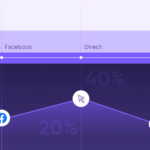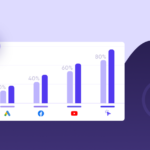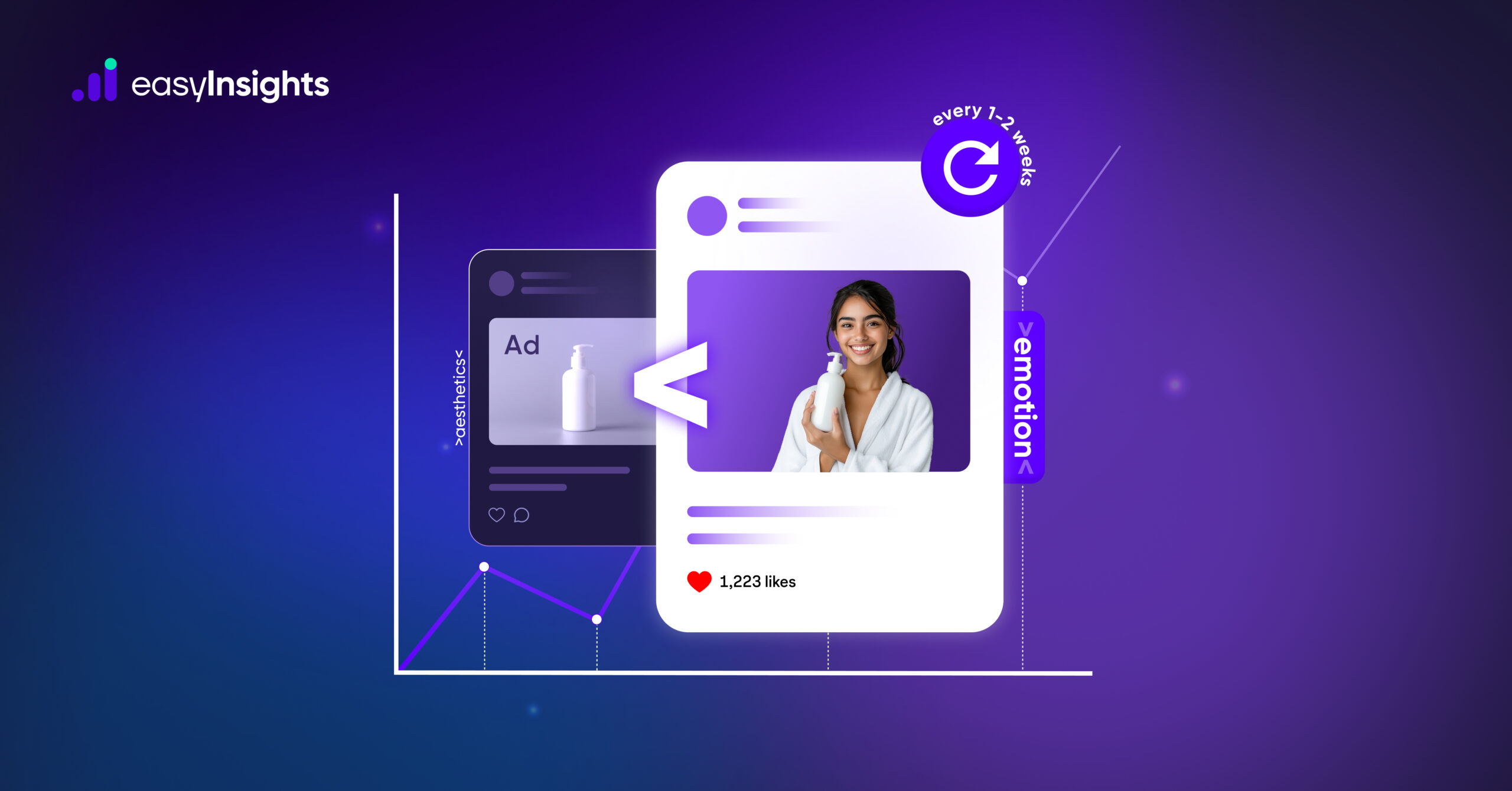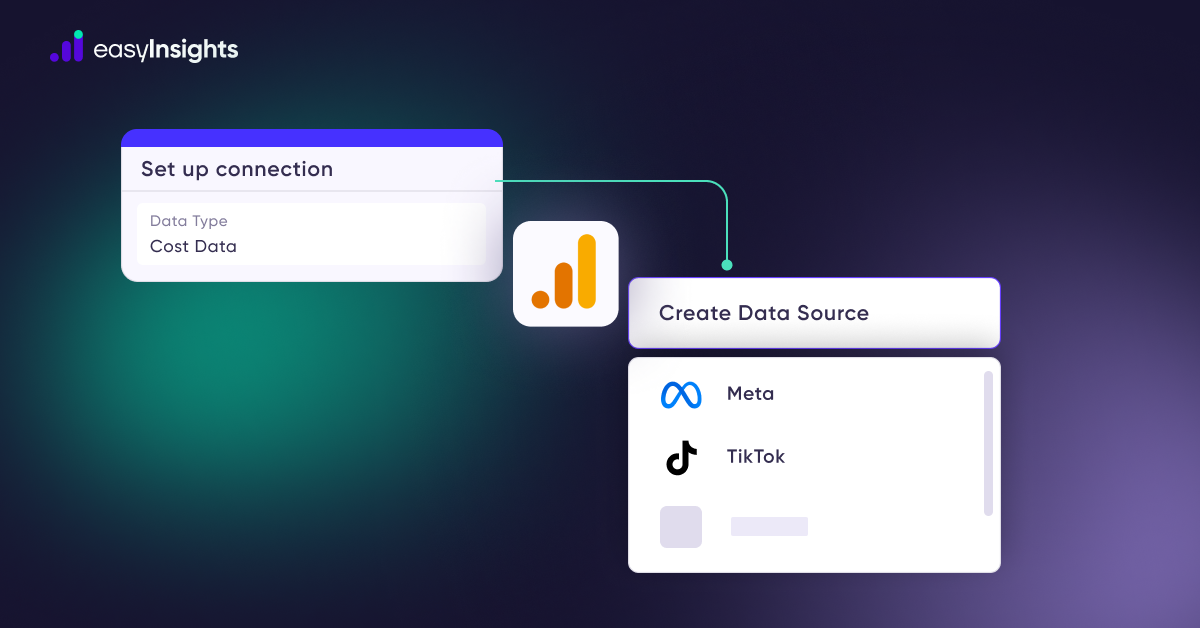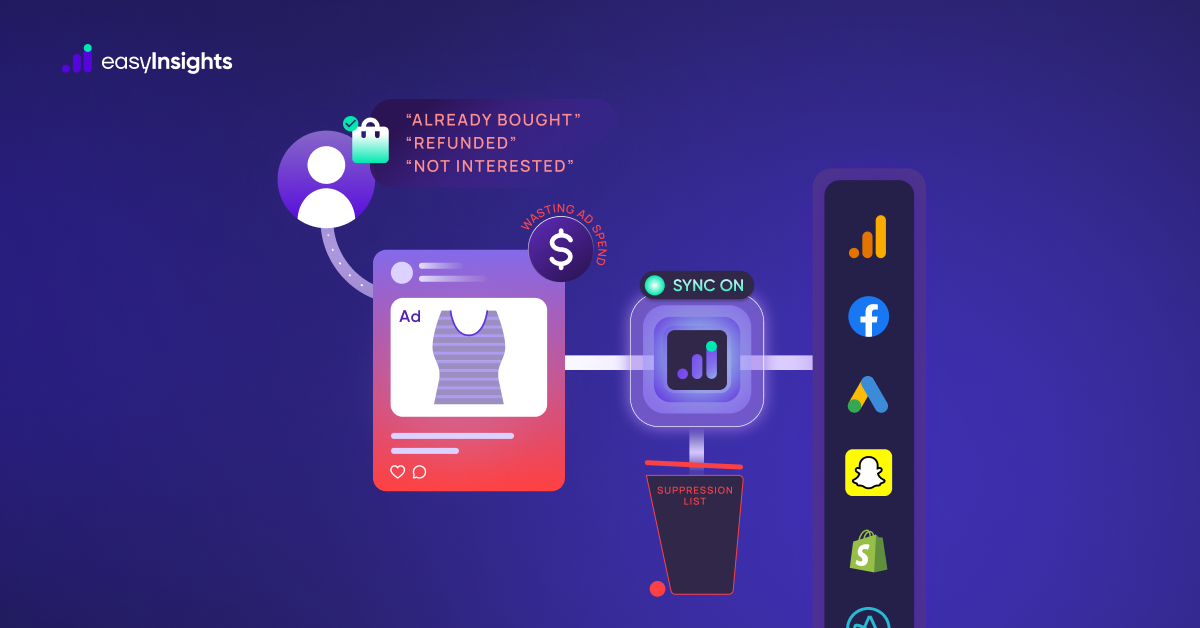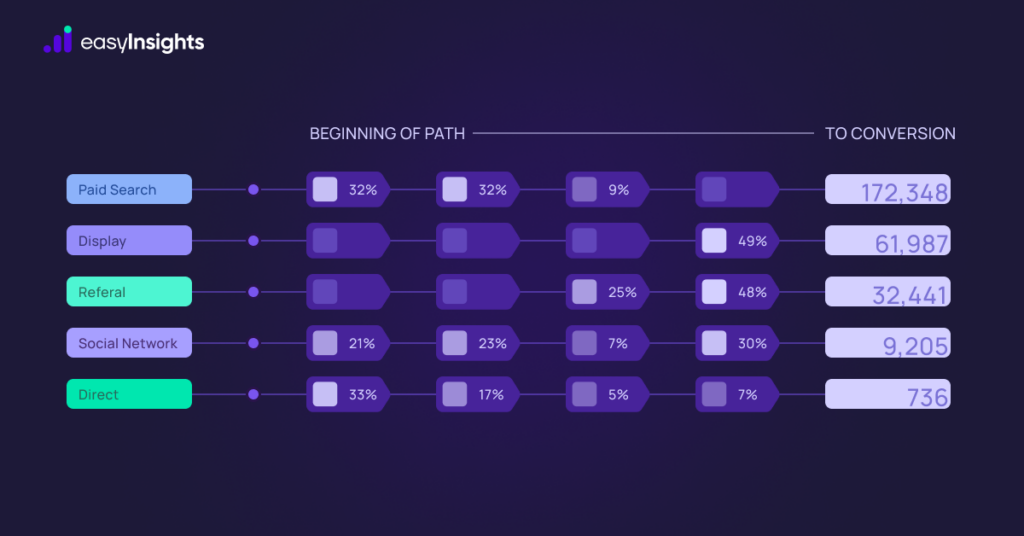
In today’s multi-channel marketing world, every click, view, and interaction tells a story – but not all stories are easy to read. With customers discovering brands across countless touchpoints, from social ads to search to email, identifying which channel truly drives conversions has never been more complex.
That’s where data-driven attribution (DDA) comes in. Powered by machine learning, it goes beyond last-click bias to analyze the entire customer journey – assigning credit to each interaction based on its real contribution to the final conversion. The result? Smarter insights, more efficient ad spend, and marketing decisions rooted in actual performance data.
If you’ve ever wondered when to use data-driven attribution, how it works, and how it can transform your marketing ROI – this guide will break it all down for you.
Jump ahead to:
What is Data-Driven Attribution?
Data-Driven Attribution (DDA) is an advanced attribution model that uses machine learning to measure the real impact of each marketing touchpoint on conversions. Unlike rule-based models, it dynamically assigns credit based on actual contribution, giving marketers a more accurate view of which channels drive results
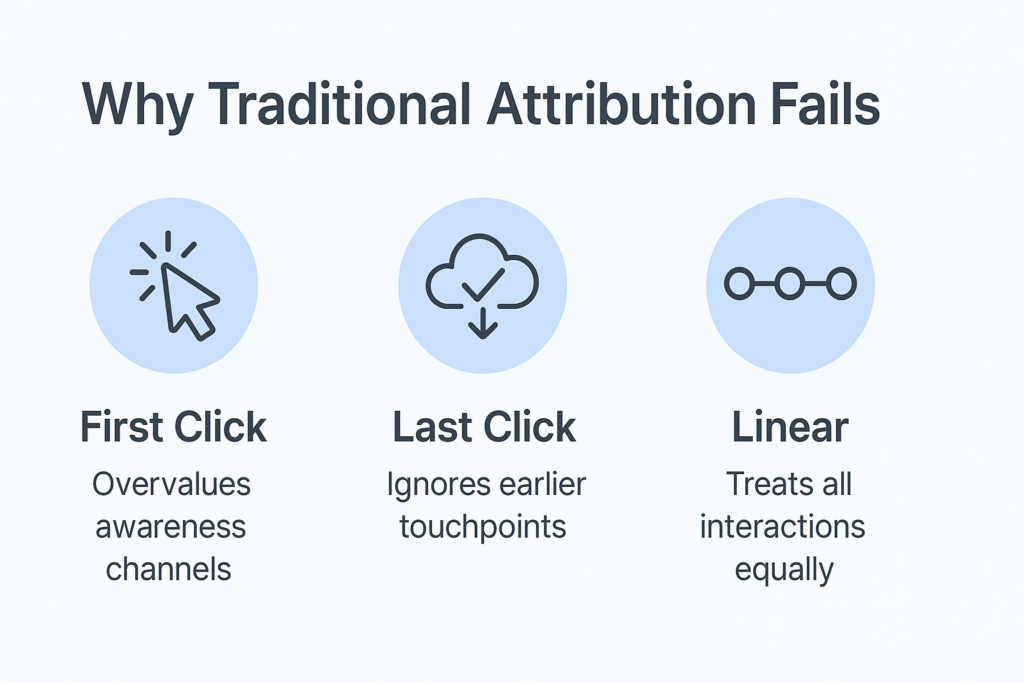
How Does Data-Driven Attribution Work?
The process of Data-Driven Attribution involves:
- Data Collection: Gathering data from all customer interactions across various channels.
- Machine Learning Analysis: Using machine learning algorithms to analyze the data and identify patterns that indicate the influence of each interaction on conversions.
- Dynamic Credit Assignment: Assigning credit to interactions based on their calculated impact on the conversion, continuously refining the model as more data is collected.
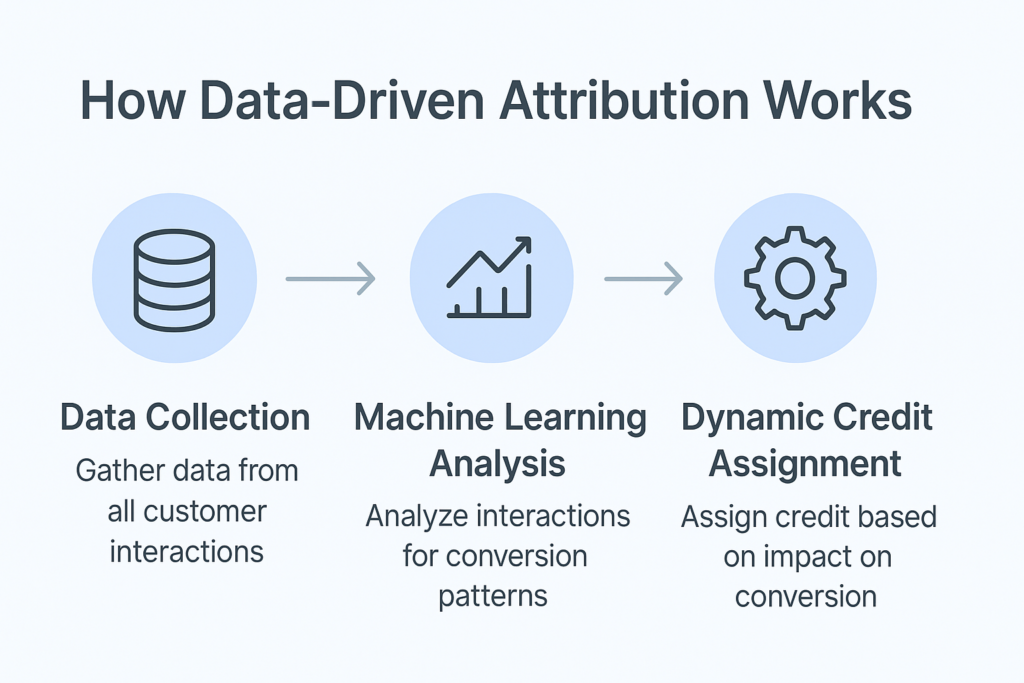
Example of Data-Driven Marketing Attribution
Let’s walk through an example to illustrate how DDA works in practice.
Imagine a user’s journey looks like this:
- They first discover your brand through a Google Search Ad.
- A few days later, they see a Facebook Ad and visit your website.
- Finally, they click on an email campaign and make a purchase.
With last-click attribution, 100% of the credit would go to the email campaign.
But with Data-Driven Attribution (DDA), machine learning analyzes all touchpoints and might assign:
- 40% credit to Google Search Ads (for discovery)
- 30% to Facebook Ads (for engagement)
- 30% to Email (for conversion)
This way, you clearly see how each channel contributed to the sale, helping you optimize budget and strategy.
Additional read: Understanding the Last-Click Attribution Model
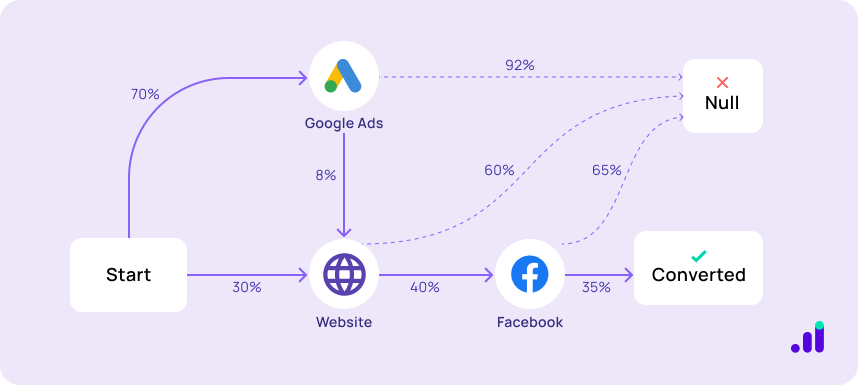
How to Set Up Data-Driven Attribution (DDA) for Your Conversions in Google Ads
1. Sign in to Google Ads
Go to your Google Ads account.
2. Navigate to Conversions – In the left menu, click Goals and then Under Conversion, select Summary.
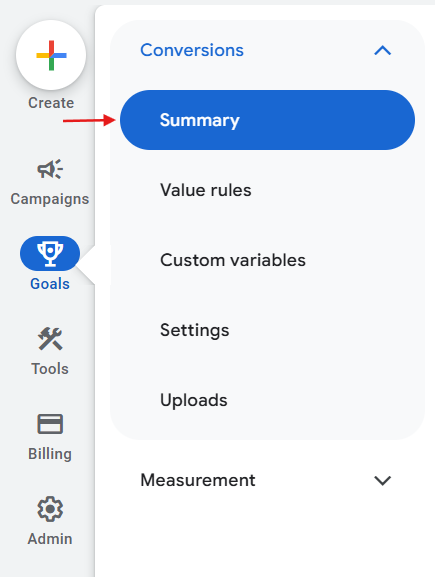
3. Click on the View all Conversion action to select the conversion action

4. Select the Conversion for which you want to perform action
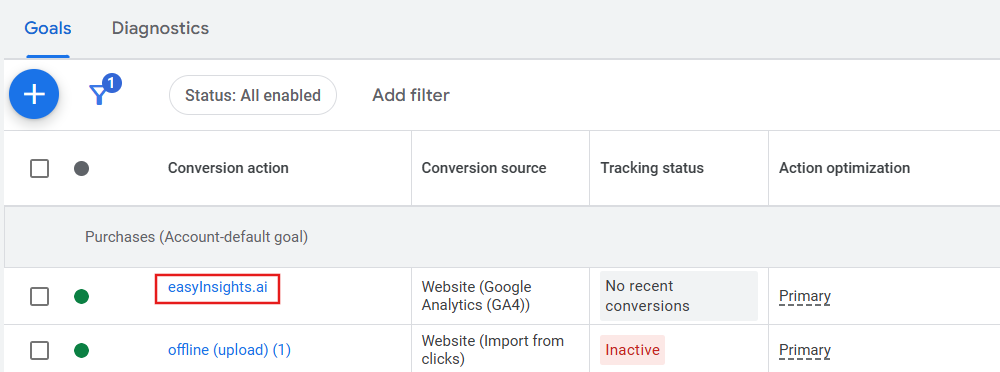
5. Click on Edit setting and then select the the attribution of your interest and then save it.
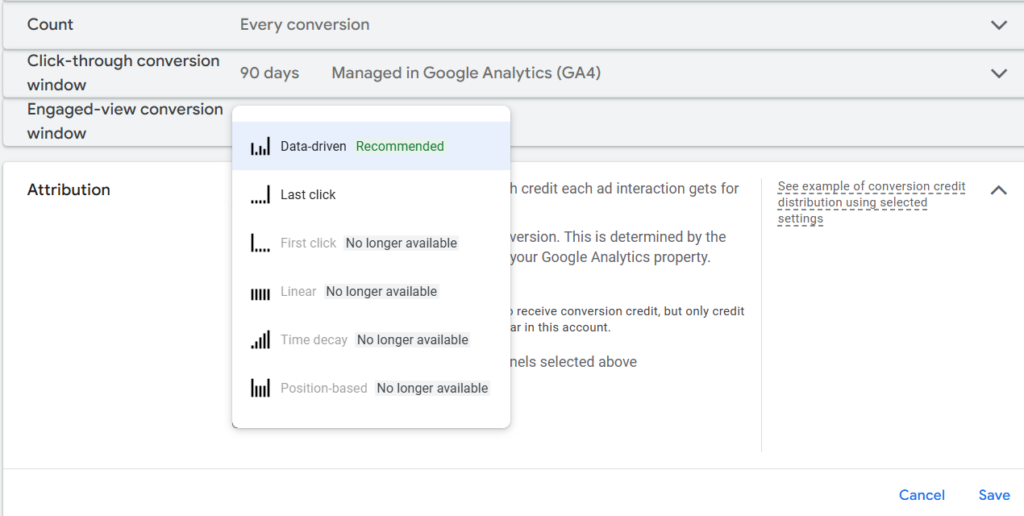
Advantages of Data-Driven Attribution
Following are the advantages of Data-driven attribution marketing –
- Accuracy: Provides a highly accurate representation of how different interactions contribute to conversions by using real data and advanced algorithms.
- Dynamic Adjustments: Continuously updates the attribution model based on new data, ensuring that insights remain relevant and reflective of current marketing dynamics.
- Comprehensive Analysis: Evaluates all interactions in the customer journey, offering a holistic view of the marketing efforts and their effectiveness.
- Unbiased Credit Distribution: Eliminates the inherent biases present in rule-based models by relying on data-driven insights.
- Optimization Opportunities: Identifies high-performing channels and interactions, enabling marketers to allocate resources more effectively and optimize campaigns for better ROI.
- Adaptability: Adapts to changes in consumer behavior and market conditions, ensuring that the attribution model remains relevant over time.
Disadvantages of Data-Driven Attribution
Following are the disadvantages of Data-driven attribution marketing –
- Complex Implementation: Setting up and managing DDA requires advanced analytical skills and access to comprehensive data, which can be challenging for teams with limited resources.
- Data Dependency: The model’s accuracy depends on the data’s quality and volume. Incomplete or poor-quality data can lead to less reliable insights.
- Cost: Implementing DDA can be resource-intensive, requiring investment in technology and expertise to manage and interpret the data.
- Transparency Issues: The complexity of the algorithms can make it difficult for marketers to understand how attribution credit is assigned, leading to potential transparency concerns.
- Initial Setup and Maintenance: Requires substantial effort for initial setup and ongoing maintenance to ensure the model remains accurate and effective.
Best Practices for Using Data-Driven Attribution
- Ensure Data Quality: Invest in robust data collection and management systems to ensure the data feeding into the model is accurate and comprehensive.
- Leverage Advanced Analytics Tools: Utilize advanced analytics and machine learning tools to analyze data and generate insights. Consider partnering with experienced data scientists or using specialized platforms.
- Integrate with Marketing Tools: Leverage DDA insights by integrating them with your marketing tools and platforms to automate and optimize campaign adjustments.
- Combine with Human Insights: Use DDA insights in conjunction with human expertise to interpret the results and make strategic decisions.
Also Read: First Party Data Onboarding – All You Need to Know
How EasyInsights Enhances Data-Driven Attribution
EasyInsights strengthens Data-Driven Attribution by ensuring every touchpoint is accurately tracked and attributed.
With server-side tracking, EasyInsights captures complete first-party data even in a cookie-restricted world – giving you a precise view of your customer journey across all channels.
It unifies data from ad platforms, CRM, and analytics tools to create a single source of truth, enabling smarter attribution and budget optimization.
By activating first-party data across marketing platforms, EasyInsights helps you make confident, data-backed decisions – ensuring your Data-Driven Attribution model delivers the most accurate and actionable insights.
Conclusion
Data-driven attribution offers a powerful and precise method for understanding the customer journey by leveraging machine learning to assign credit to each interaction dynamically. While its implementation can be complex and resource-intensive, the depth of insights provided makes it an invaluable tool for optimizing marketing strategies. Effective attribution requires accurate and comprehensive data to function properly.
EasyInsights provides a reliable solution for attribution challenges by leveraging server-side tracking to gather first-party data. With detailed insights and robust analytics, EasyInsights can help you implement the right attribution strategy for your marketing efforts.


